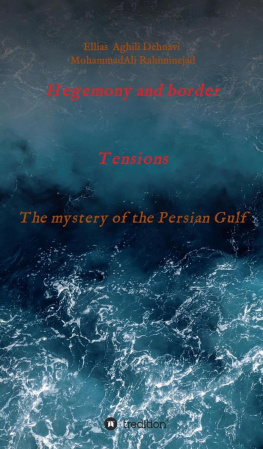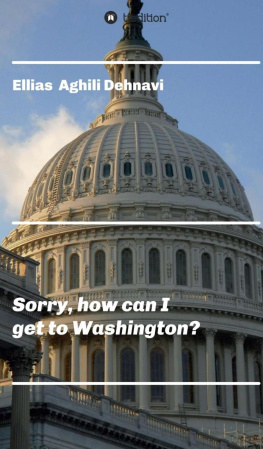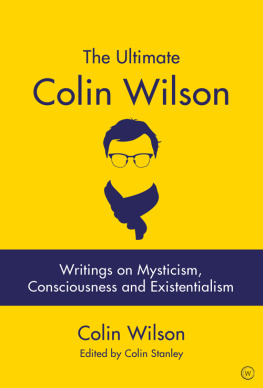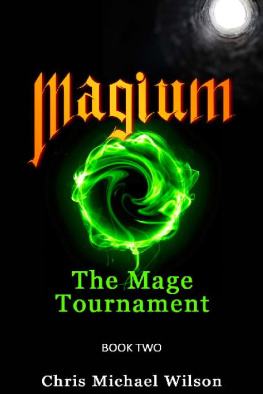Copyright 2020 Ellias Aghili Dehnavi, Mobin Karbasi
Cover, illustration: Anita Safavipour
Publisher: tredition GmbH, Halenreie 40-44, 22359 Hamburg, Germany
ISBN |
Paperback: | 978-3-347-12225-3 |
Hardcover: | 978-3-347-12226-0 |
eBook: 978-3-347-12227-7
Printed on demand in many countries
All rights reserved. No part of this publication may be reproduced, distributed, or transmitted in any form or by any means, including photocopying, recording, or other electronic or mechanical methods, without the prior written permission of the publisher, except in the case of brief quotations embodied in critical reviews and certain other noncommercial uses permitted by copyright law. For permission requests, write to the publisher
Do It as Wilsons Says!
Authors: Ellias Aghili Dehnavi, Mobin Karbasi
To Payam and Ali:
Sorry for that night in the restaurant
But it was all fun.
And also To Roland, not the Weasley but the Von Hinuber who is even more magical!
Winter, 2019
Abstract
Generally, four approaches to US foreign policy can be explained. According to the tradition of Jacksonism, the United States, as the dominant power, provides global leadership to stabilize the political order and regulate the international economic system, and to prevent the emergence of a dominant power in order to maintain the balance of global power. According to the tradition of Hamiltonianism, the United States avoids thorny external obligations that harm its economy, society, and system of government. St. Wilsonism believes that the United States should support foreign freedom by expanding free markets, democracy, human rights, and national autonomy. The present study examines the Wilsonian approach concerning US foreign policy.
The fundamental question that has been raised and examined in this context is what are the foundations of the Wilsonian approach and what impact has it had on US foreign policy? The present study is a descriptive-analytical study using the library research method to investigate the question. The results of the study indicate that Wilsonism seems to reject "national interests" as a measure of national selfishness to interfere in the world and does not believe in interfering in different parts of the world to achieve national interests. In this school of thought, the goal of war is to rebuild the world based on the American model.
B- Transformation of the world system; Wilsonism does not see the principle of balance of power in the world as a good principle for American foreign policy.
1 .Introduction
There are four traditions in US foreign policy that overlap, reinforce, and sometimes contradict each other in a relationship: the tradition of Hamiltonism, which pursues national interests and economics wisely; The tradition of Jeffersonism, which focuses on the repeated use of force, coercion, and self-help, and another group, which portrays democracy as a shining beacon for others; and finally, Wilsonism, which is idealistic and considers democracy to build a safe world. Each of these traditions has its own unique characteristics; Hamiltonism is cautious, and its realism causes it to ignore moral attractions. Jacksonism is strong and hard, and this isusse will lead to a lack of cooperation with others due to the strong emphasis on power. Thus, it can be said that Hamiltonianism and Jacksonism are inefficient in soft power; while Jeffersonium, on the other hand, has a lot of soft power and not enough hard power. Wilsonism has been able to be largely moderate (largely soft power and little hard power). While Hamiltonianism and Jeffersonism are cautious and conservative in foreign policy, the Wilsonians sought an opportunity to turn it into an international situation.
The focus of the present study is on the Wilsonian approach considering American foreign policy. Woodrow Wilson declared in 1919 that we were setting up this country to free the captives from the hands and feet of human beings, and do not limit this goal to the borders of the United States. Today, however, decision-makers play a key role in the foreign policy process; but it should not be assumed that national goals and interests arise from the minds of policymakers without preamble and are implemented in the form of specific policies and orientations. In many cases, these decisions are the result of values and beliefs, historical and cultural contexts, domestic needs, and the structure of the international system, based on which they provide reasons and justifications for policy makers to make decisions and set goals. Finally, it identifies a set of variables that can be used to evaluate one's own behavior as well as the actions of others. Accordingly, the study of the foreign policy of countries and great powers should be done according to the political traditions, values, concepts and broad meanings of the culture of liberalism in those countries. Liberal ideas are the source of liberal foreign policy, and this is the difference point between the foreign policy of liberal democracies and other non-liberal governments. This study examines the question of what are the foundations of Wilsonism in American foreign policy and what effect has it had on US foreign policy? In order to study and answer the question, first, Wilsonism in American foreign policy is explained and then the impact of this approach on American foreign policy is examined.
2. Wilson in American Foreign Policy
This secssion examines Wilson in US foreign policy and the components of this approach.
2- 1- Formation of Wilsonism approach
It was a pivotal year, 1917, in the history of American foreign policy; in April of that year, the idealistic President Wilson announced his country's entry into World War I in response to repeated German submarine attacks on passenger ships. In doing so, he effectively abolished the Monroe tradition of continental isolationism and replaced it with an active foreign policy on the US diplomatic order which is also referred to as internationalism in the literature of international relations. The announcement of US entry into the war in April 1917 undoubtedly boosted the Allies' hopes of victory, but its effects required a one-year deadline; because the United States had no army and had to go to war after its creation. The first American units arrived in Europe in the falloff 1917, and their effective arrival began in the summer. However, with the United States entering the war, the Allies had more hope and were thus able to overcome the Axis Powers on various fronts and end the war that had overshadowed Europe continent for about four years. At the end of the war, a peace conference was held in Paris, the first agenda of which was the peaceful settlement of disputes between countries. The conference was an exceptional opportunity for Wilson to implement the fourteen principles he had set out on January 8, 1918, for the peaceful management of international relations.
Wilson's fourteen principles are (Naqibzadeh, 2009:(
1 .Open diplomacy and dialogue between states and the prohibition of any confidential agreement or personal understanding of international affairs














